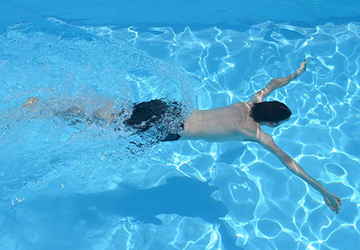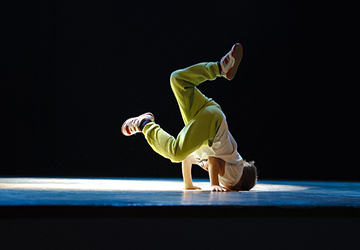Modern lifestyles can be overwhelming, and it's not uncommon to experience stress. Balancing work, family, and social commitments can harm your mental health, leaving you drained and anxious.
Fortunately, many stress-reduction exercises can help you find the mental relaxation you crave. Incorporating these exercises into your daily routine can help you regain control of your life, reduce stress, and promote overall health.
This blog post explores ten stress-stress exercises for inner peace and emotional balance.
Are you ready to explore stress reduction techniques? Let's start by taking a deep breath.

1. Mindfulness meditation
Mindfulness meditation is a powerful stress-stress practice that helps you focus on the present moment. You can develop awareness and reduce stress-related symptoms by focusing on your breath, bodily sensations, or thoughts.
How to practice:
1. To begin your relaxation practice, find a quiet, comfortable place to sit or lie down.
2. Close your eyes, focus on breathing, inhale deeply, and exhale slowly.
3. When your mind wanders, gently bring your attention back to your breath.
2. Yoga
Yoga is an ancient practice that combines posture, breathing exercises, and meditation to promote mental relaxation. Practicing yoga regularly can help you manage stress, improve your mood, and improve your mental health.
How to practice:
1. Choose the style of yoga that suits your needs, such as Hatha Yoga, Tandem Yoga, or Yin Yoga.
2. Find a quiet spot and lay down a yoga mat or any comfortable surface.
3. Follow an online guided yoga routine or take a class to learn from a teacher.
3. Progressive Muscle Relaxation
Progressive muscle relaxation (PMR) is a stress relief technique that involves tensing and relaxing different muscle groups. This exercise can help you release physical tension and promote mental relaxation.
How to practice:
1. Find a comfortable place to sit or lie down.
2. Starting with your feet and working your way up, tense each muscle group for 5-10 seconds before relaxing.
3. Notice how it feels to tighten and relax as you work on each muscle group.

4. Take a deep breath
Deep breathing exercises can help calm your mind and reduce stress by activating your body's relaxation response. Regular exercise can lower your heart rate and blood pressure and promote mental relaxation.
How to practice:
1. Sit or lie down comfortably.
2. Inhale deeply through the nostrils, allowing the abdomen to expand and the air to fill the lungs.
3. Exhale slowly through your mouth, feeling your stomach sag.
4. Repeat this movement for a few minutes while focusing on breathing.
5. Visualization
Visualization, also known as guided imagery, involves imagining peaceful scenes or experiences to encourage relaxation. This stress-reduction exercise can help clear your mind and reduce anxiety.
How to practice:
1. Find a quiet and comfortable place to sit or lie down.
2. Close your eyes and imagine a calm, soothing environment.
3. Engage all your senses and absorb the experience.
6. Aerobic exercise
Regular aerobic exercise like running, swimming, or dancing can help release endorphins and reduce stress. These activities can improve mood, increase energy levels, and promote mental relaxation.
How to practice:
1. Choose your favorite cardio activity.
2. Aim for at least 30 minutes of moderate-intensity exercise on most days of the week.
3. Always warm up and cool down before each meeting
7. Tai Chi
Tai Chi is a gentle, meditative martial art that involves slow, fluid movements. Practicing Tai Chi can help you reduce stress, improve balance and promote mental relaxation.
How to practice:
1. Find a quiet, open place to practice.
2. Follow a guided Tai Chi routine online or take a class to learn from an instructor.
3. When practicing, pay attention to the fluency of breathing and movement.
8. Keep a journal
Journaling is a powerful stress-relief exercise that can help you process your emotions, gain insight, and find mental relaxation. By putting your thoughts and feelings on paper, you can better understand the sources of stress and develop effective coping strategies.
How to practice:
1. Find a quiet place and set aside time each day to write.
2. Write about your thoughts, feelings, and experiences without judgment or censorship.
3. Reflect on your input periodically to track progress and identify patterns.

9. Laughter
Laughter is a natural stress reliever that can elevate mood, relieve tension and promote mental relaxation. Engaging in activities that make you laugh can help you feel more relaxed and reduce your cognitive load.
How to practice:
1. Watch an interesting movie or TV show.
2. Share jokes or funny stories with friends and family.
3. Watch a comedy show or attend an event that makes you laugh.
10. Social Relations
Connecting with others is essential to mental relaxation and overall well-being. Spending time with friends, family, or a support group can help you feel understood and valued and reduce stress.
How to practice:
1. Connect with friends and family regularly for discussions or activities.
2. Join a club, class, or support group in your community and meet new people.
3. Consider volunteering or participating in networking events to network.
Diploma
Stress is unavoidable, but with these ten best stress-reduction exercises, you can take charge of your mental health and find the relief you need. Incorporating these exercises into your daily routine can reduce stress and improve your mood and overall health. So don't let anxiety hold you back - take care of your mental health and experience the benefits of these stress-stress exercises today!




